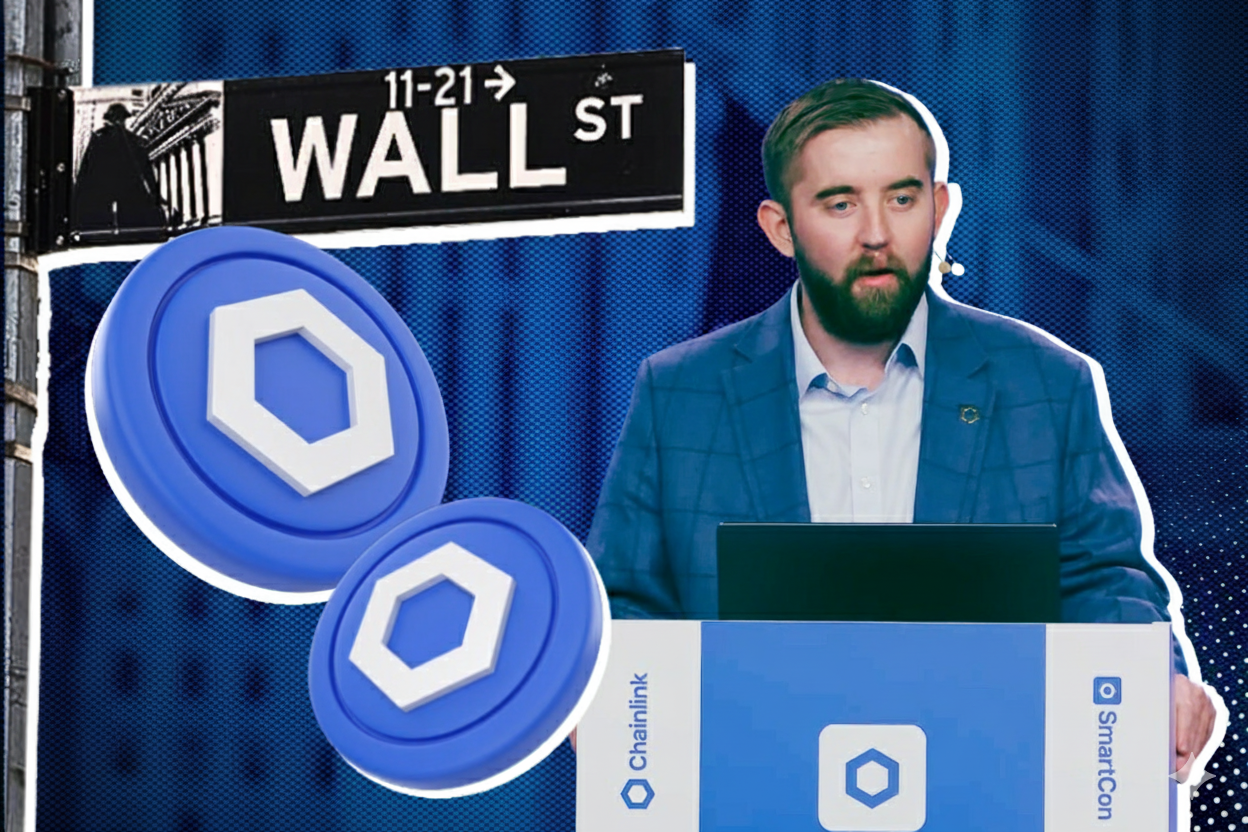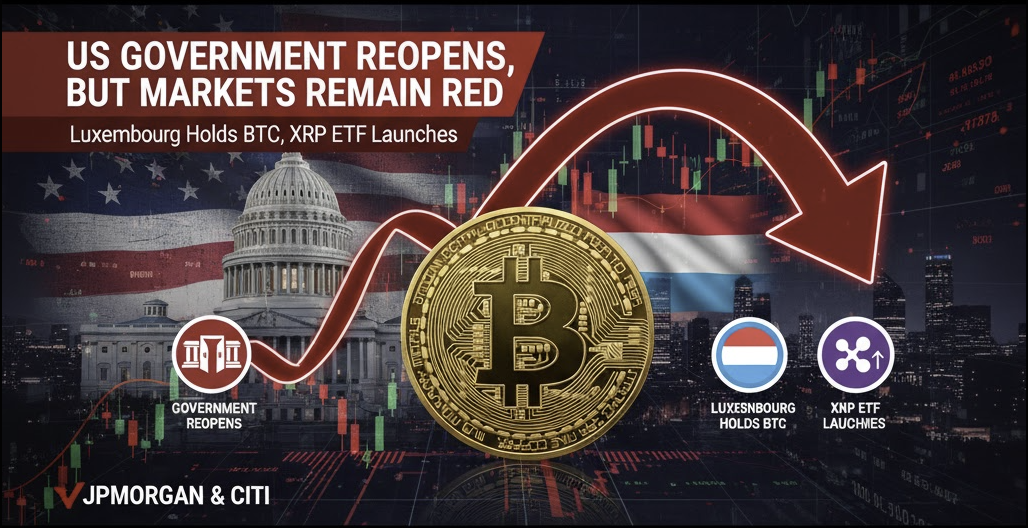This week promises significant market-moving events, including the G7 Summit. Concurrently, Vietnam makes a landmark move by officially recognizing digital assets, a development with far-reaching implications for the country's digital economy.
Market Overview
On Sunday, June 15th, US futures saw slight declines. Oil prices continued their ascent, reaching $74.28 per barrel, and gold also advanced to $3466 per ounce.

This week, markets await interest rate decisions from the Bank of Japan and the Bank of England. The United States will release its unemployment report, and the Federal Reserve (Fed) will convene for its meeting, culminating in an interest rate announcement. In the crypto space, a key legislative development is the vote on the GENIUS stablecoin bill.
Bitcoin is hovering around the $105,000 mark. Some major altcoins are showing slight gains in tandem with Bitcoin, while others are experiencing minor declines. The total cryptocurrency market capitalization has dipped slightly to $3.423 trillion.

Bitcoin is now preparing to complete its 37th consecutive day trading above the $100,000 mark. There was a time when the community closely monitored how long Bitcoin could sustain itself above $10,000. Remarkably, the digital currency has now maintained a price above $10,000 for 1,739 consecutive days.
No one knows how long Bitcoin will remain above $100,000, but there will come a time when it surpasses this milestone permanently, never looking back, just as it did with the $100, $1,000, and $10,000 levels. This continued resilience above key psychological and historical price points underscores Bitcoin's maturation and growing stability as a financial asset.
G7 Summit 2025 in Canada: Geopolitical Undercurrents
The G7 Summit is currently underway from June 15th to 17th in Kananaskis, Canada. Leaders from the world's leading economies are attending, with expectations for updates on trade agreements between the US and its partners.

Non-G7 nations invited to the summit include India, Ukraine, Brazil, South Africa, South Korea, Australia, Mexico, and the UAE. Most of these nations are seeking to avoid new tariffs from the United States.
However, the summit is overshadowed by the escalating conflict in the Middle East between Israel and Iran. UK Prime Minister Keir Starmer stated he had discussed de-escalation efforts with President Trump and Israeli Prime Minister Netanyahu. The UK has deployed fighter jets and reinforcements to the Middle East. Prime Minister Starmer affirmed that Iran is a concern but also called for avoiding further escalation.
Canadian Prime Minister Mark Carney has canceled the customary joint statement, reportedly due to concerns that President Trump would not agree to it. This year's G7 may, therefore, consist primarily of a series of bilateral meetings rather than a display of group consensus.
President Trump is widely seen as the "unpredictable factor" of the conference. He has previously made startling statements, such as wanting to make Canada the 51st US state or "buying Greenland." This led French President Macron to make a symbolic visit to Greenland before arriving in Canada.
French President Macron and UK Prime Minister Starmer are attempting to build an alliance to support Ukraine, but President Trump has yet to make any security commitments. Ukrainian President Volodymyr Zelenskyy will also attend and meet with Trump, despite their previous White House encounter being reportedly strained. The geopolitical landscape and internal G7 dynamics are clearly at play, influencing market sentiment and global policy direction.
Vietnam Officially Recognizes Digital Assets
Vietnam has officially recognized digital assets in a new law set to take effect on January 1, 2026. This marks the first time digital assets have been legalized in the country, establishing a crucial legal foundation for the development of its digital economy.

Under the new law, digital assets are categorized into two groups. The first group comprises virtual assets – these are assets existing as digital data, used for investment or exchange, but are not securities or legal tender. Examples include virtual items in games that can be resold, tokens used within service ecosystems (not recognized as currency), or accumulated reward points with convertible value.
The second group is crypto assets, which include assets created, stored, and transferred through cryptographic technology, such as blockchain. Unlike ordinary virtual assets, crypto assets can be traded on decentralized networks, hold significant value, and are widely accepted, thanks to their secure, verifiable, and transferable mechanisms underpinned by technology. Both types of assets are now legally recognized; however, specific implementation details will be guided by the Government in the coming period.
The law also mandates adherence to international standards, including system security and safety, anti-money laundering (AML), and counter-terrorist financing (CTF) measures, while ensuring transparent and clear management of digital assets.
Furthermore, the law introduces robust support policies for technology companies. Incentives include tax reductions, land use support, and recruitment and training for high-tech personnel. The state encourages startups to experiment with new technologies and will invest in building shared digital infrastructure. Special priority areas include software, artificial intelligence (AI), semiconductors, and data centers.
In the semiconductor industry, Vietnam aims to develop a strong chip manufacturing sector capable of participating in the global supply chain. The support policy encompasses the entire process: from research, design, manufacturing, packaging, to testing, while also encouraging foreign investment attraction and integration with the electronics industry.
In the AI sector, the law establishes principles for managing high-risk systems, ensuring user safety. Concurrently, digital technology and artificial intelligence training content will be integrated into the national education curriculum, applicable to both public and private schools.
This law clearly articulates Vietnam's direction in building a modern digital economy, fostering innovation, and deeply integrating with the global landscape. This regulatory clarity is a significant step forward for the growth of the digital asset and blockchain ecosystem in Vietnam.
Michael Saylor Responds to Investor Criticisms on MicroStrategy's Bitcoin Strategy
MicroStrategy continues its relentless acquisition of Bitcoin, increasing its total holdings to 582,000 BTC, valued at over $60 billion. Notably, all purchases made since 2020 have been profitable.

Michael Saylor, the executive chairman of MicroStrategy, has refuted criticism from short-seller Jim Chanos, who argued that MicroStrategy's stock is overvalued compared to its Bitcoin holdings. Saylor stated that Chanos completely misunderstands their business model.
MicroStrategy is currently the world's largest issuer of Bitcoin-collateralized credit instruments. They have issued three types of preferred stock—STRK, STRD, and STRF—to raise capital without diluting common shares. The company uses Bitcoin as collateral to raise long-term, low-risk capital that often does not require repayment. This capital is then continuously used to purchase more BTC, optimizing profitability.
Saylor asserts that MicroStrategy is not an ETF or a mere holding company; it is an operating business with a financial strategy centered around Bitcoin. He believes this explains why the company's stock consistently trades above its Net Asset Value (NAV). In the first half of 2025, MicroStrategy generated $8.4 billion in profit from Bitcoin and aims to reach $15 billion for the entire year. According to Saylor, applying a valuation multiple of 10 to 20 times that profit would result in a significantly larger company valuation.
Compared to ETFs like Invesco PGX (a preferred stock ETF), Saylor claims their preferred stock offers higher yields, better tax efficiency, greater liquidity, and is fully collateralized by Bitcoin.
These are Michael Saylor's insights, but history also shows that MicroStrategy's stock is highly volatile, closely tracking the price of Bitcoin. When BTC rises, the stock can increase multi-fold, but it can also decline sharply during market corrections. Financially, the company currently does not face the risk of default, as its assets (primarily Bitcoin) far exceed its debt.
However, if Bitcoin prices experience a prolonged decline and revenue from its software business is insufficient to cover debt, it is entirely possible that the company might be forced to sell a portion of its assets (including BTC)—contrary to Saylor's "will never sell Bitcoin" pledge. While this commitment holds true under current conditions, adverse financial situations could compel the company to alter its strategy.
Investing in MicroStrategy stock, therefore, depends on an individual's long-term outlook for Bitcoin. For long-term shareholders, history suggests the potential for significant returns, albeit through periods of extreme volatility alongside the broader crypto market.
Other Key Crypto Updates
Charles Hoskinson, founder of Cardano, has proposed utilizing $100 million worth of ADA from its treasury to purchase stablecoins and Bitcoin, aiming to develop BTC-related DeFi on the Cardano network. He dismissed concerns that selling ADA would cause price pressure. The proposal's objective is to increase the ratio of stablecoins and Total Value Locked (TVL) on Cardano to 30–40% (currently ~10%). Currently, Cardano has a TVL of $356 million and only $31 million in stablecoins; Solana, for comparison, boasts a TVL of $9.8 billion and $11 billion in stablecoins.
The Polkadot community is debating a proposal to sell 500,000 DOT over 12 months to acquire Bitcoin through a Dollar-Cost Averaging (DCA) strategy. Proponents argue that a BTC reserve would mitigate risk if DOT's price declines. Opponents worry that DOT is currently at a low point while Bitcoin is too expensive, potentially leading to losses. The community will vote on the proposal at the end of the month. These internal debates highlight the strategic decisions being made by major blockchain ecosystems regarding treasury management and diversification into leading crypto assets.
The SEC has approved Trump Media's filing, allowing the company to use $2.3 billion recently raised to purchase Bitcoin. The filing includes a $12 billion shelf registration, enabling Trump Media to issue additional shares or bonds at any time. The capital from approximately 50 institutional investors has now been unlocked and can be used to acquire BTC at any point. This development marks a significant move by a publicly traded media company into the Bitcoin space, indicating growing mainstream acceptance and strategic allocation of corporate funds into digital assets.
JPMorgan has raised its price target for several Bitcoin mining companies, including CleanSpark, Riot Platforms, and MARA Holdings. The bank predicts a 24% increase in Bitcoin's price and a 9% increase in the network's hashrate, reflecting a bullish outlook on the future of Bitcoin and its underlying infrastructure. This institutional endorsement further validates the long-term prospects of the Bitcoin ecosystem.
GameStop has increased the value of its convertible bond offering from $1.7 billion to $2.25 billion. The unsecured, interest-free, non-accreting bonds mature on June 15, 2032, and are convertible into GameStop shares at a premium, making them attractive if the stock price rises. This financial maneuvering by a company with significant retail investor interest often correlates with broader market sentiment, including in the crypto sphere.
Sources
- Bloomberg
- CoinDesk
- U.S. Treasury
- TradingView
- Reuters
- SEC
- General Department of Taxation, Vietnam
Disclaimer
This article is for informational purposes only and should not be considered financial advice. Please do your own research before making investment decisions.


.png)





